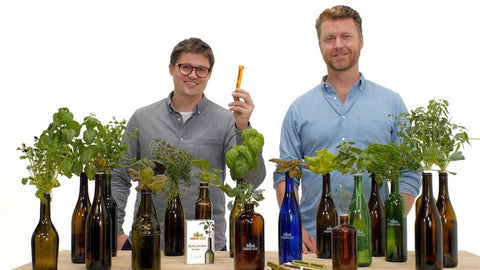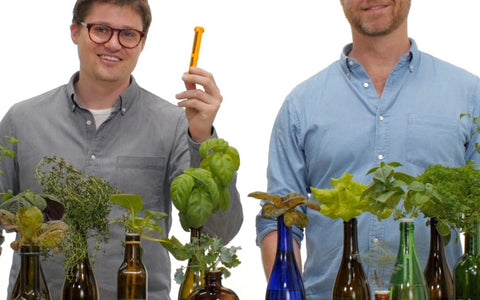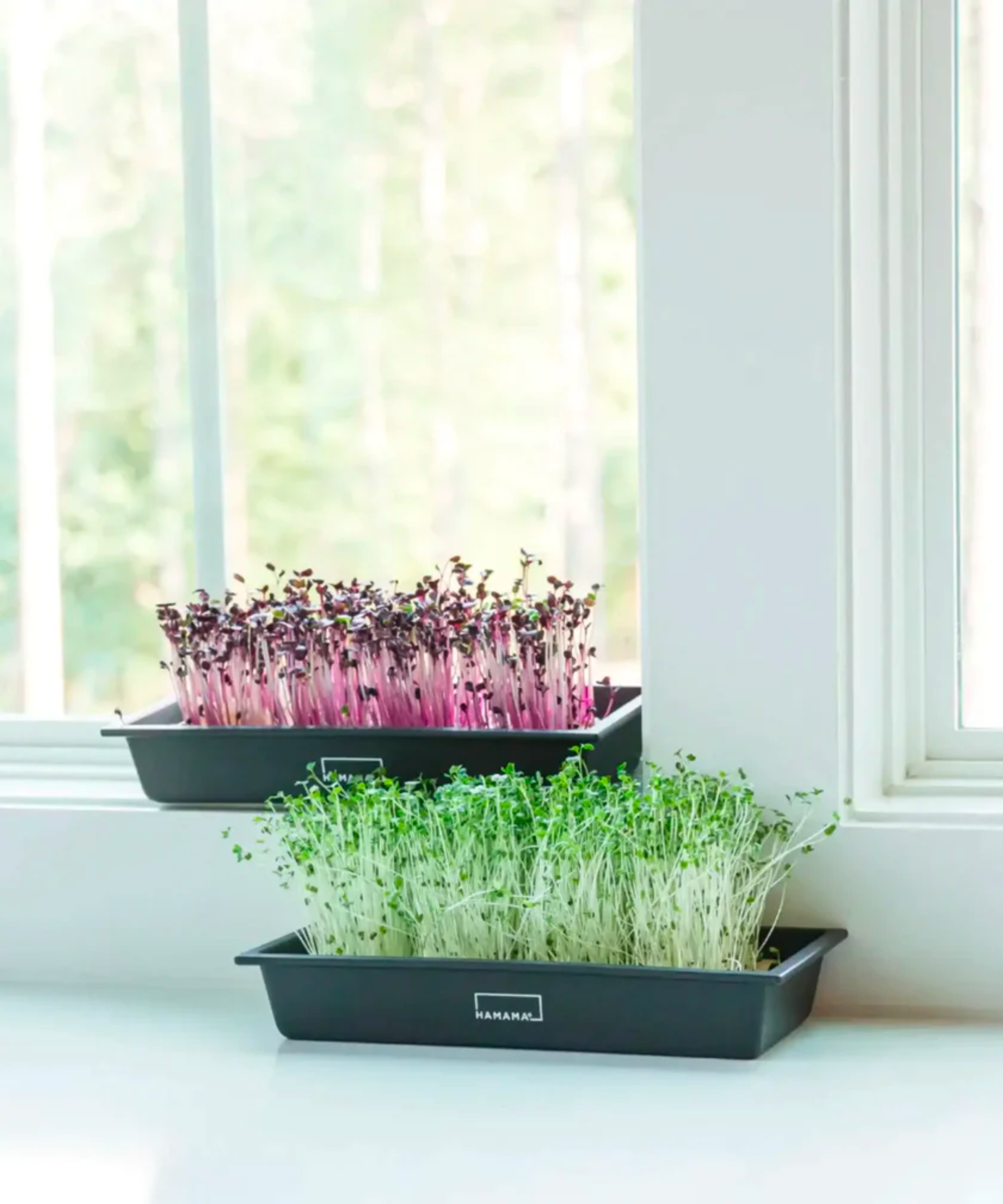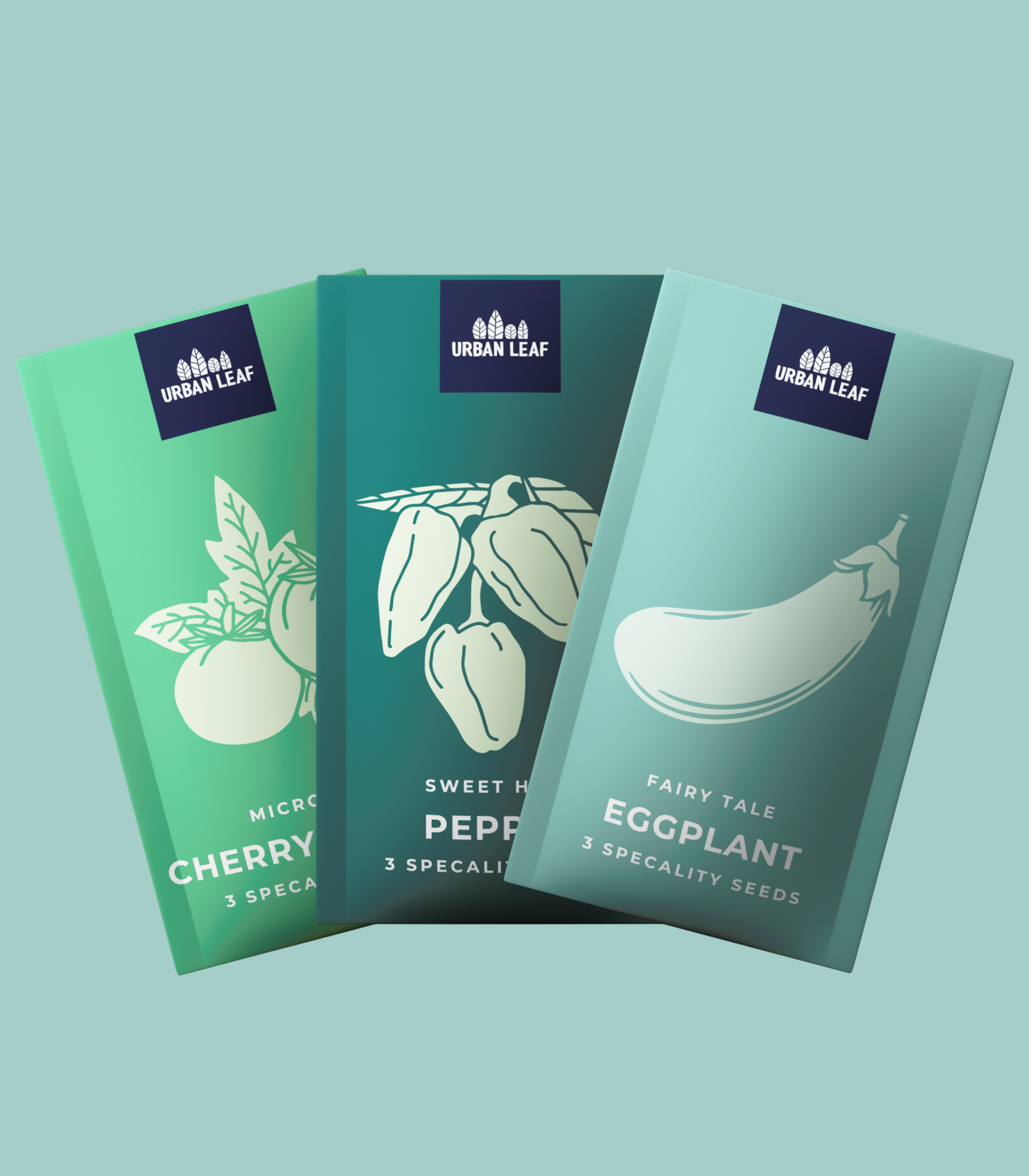The following interview was originally publish on Medium by Columbia Venture Community, following our win at the Spring Demo night in 2017.
Tell us all about Urban Leaf and what it does!
Urban Leaf makes growing food at home fun, easy and accessible. We’re developing a range of consumer hydroponics products specifically designed for growing food in urban environments. We believe that by helping put fresh, healthy food in your home we can improve both the quality and length of your life.
That sounds wonderful! What was your inspiration?
My first ever career aspiration was to become a chef, but at the age of about 10 my mom told me that to do so would mean getting up at 4am every day for work. Back then I liked sleeping in! Although I never became a chef, food is something that’s remained important to me. A couple of years ago I discovered a guy named Michael Pollan , who has served as a source of both inspiration and education.
As someone who enjoys spending time outdoors, it was with horror that I learnt about the damage we were causing to the natural environment through our eating choices. For most of us, there is unlikely to be a decision we make today that has a greater impact on the planet than what we decide to eat.
The health consequences of our food choices are pretty scary too, and the fact that there’s such a good correlation between food choices that are good for the planet and those that are good for us personally has only amplified my desire to become a change maker in this field. I believe that our relationship with food is one of the biggest challenges our generation faces.
Legacy, purpose and impact are my core values. Urban Leaf is about improving the legacy we leave behind for future generations.
And what has been your own biggest challenge in developing Urban Leaf?
NYC is full of people who know how to build technology and service based businesses, but people who understand hardware are few and far between. We’re looking at some hardware based accelerator programs for post-graduation, but in the mean time are teaching ourselves.
How is it going?
We’re a hardware producer. Hardware is complicated. There’s a tremendous amount of legwork involved in figuring out things like manufacturing, distribution, packaging, printing, logistics, inventory, e-commerce, etc. The nice thing about our approach, however, is that we’ve started off manufacturing using 3D printing. Although the costs are high (compared to injection molding) the nice thing about it is that it allows us to employ lean development techniques. We can produce in small batches, listen to feedback, and make design iterations within weeks. Our first product is also a fairly simple one — so it’s a great way to ‘learn’ how to make a widget.

What were the first steps you took?
Rob and I participated in Summer Startup Track in 2016, run by the Lang Center for Entrepreneurship at the Business School. This is when we first put together a business plan and started working on the design seriously. We’re now up to about Rev 35 of the business plan. As for the product design; it couldn’t be more different!
If you knew then what you know now- what, if anything, would you have done differently throughout the process?
I would have spent more time understanding the customer, and finding product/market fit and less time building websites, preparing business plans, and trying to run a social media campaign. Frankly — until you understand the customer and know the product they want, the other stuff is a waste of time because you don’t know who you’re building it for or why they’re buying it.
Is there any specific piece of advice you would pass on to other founders?
The best approach to entrepreneurship I have ever come across is to 1) start with the customer. This should be someone you feel passionately about helping. You should want to get out of bed each day excited by the prospect of helping them. Hopefully there is something that attracts you to this customer besides the size of their wallet. 2) Ask these people what their problems are. 3) Figure out how to solve their problems. If nothing else, this approach ensures that you can wake up everyday doing something you’re passionate about and you will never have to ‘work’ another day in your life. I believe this approach is much more likely to result in a happy entrepreneur than the more common alternative — which involves coming up with an idea and then finding someone to buy it.
How has CVC aided the process?
CVC is one of, if not the, most valuable entrepreneurial resources I have come across since becoming a member of the Columbia community. I’m constantly amazed at the degree of collaboration and assistance that this group demonstrates. It’s a beautiful thing. A real asset to the entrepreneur.
Is there anything else you would like us to know about? (i.e. product launches, recent achievements, links to other interviews..)
Yes! We’re launching our first product on Kickstarter in May 2017. ( You can check that out here.) The World’s Smallest Garden is designed for busy urbanites who lack the time or space to maintain a garden. The product uses patented hydroponic technology to grow plants out of the top of a bottle. Follow us on social media (@geturbanleaf) to learn more.










There are no comments for this article. Be the first one to leave a message!